Douglas ChriseyJung Chair of Materials Engineering and Professor of Physics, Tulane University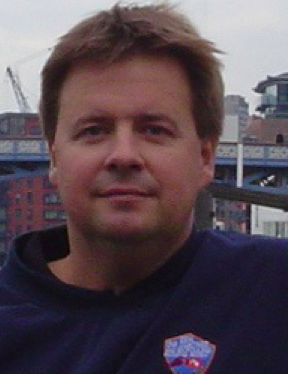 Professor Chrisey currently is the Jung Chair of Materials Engineering and a Physics Professor at Tulane University. Doug began his engineering and academic career when he earned a B.S. in Physics from the State University of New York At Binghamton in 1983 and later a Ph.D. in Engineering Physics from the University of Virginia in 1987. He spent the next 17 years at the Naval Research Laboratory as the Head of the Laser Processing Section. After spending 1 year as the Deputy Director at the North Dakota State University Center for Nanoscale Science and Engineering, Doug joined Rensselaer Polytechnic Institute as a Professor of Materials Science and Biomedical Engineering. Currently, Prof. Chrisey is teaching and performing research at Tulane University and is the Jung Chair of Materials Engineering in the Department of Physics and Engineering Physics with Adjunct appointments in the Biomedical Engineering Department at Tulane. He is well known to the world of science with more than 400 citable publications and over 12,000 citations and an h-index value of 53. He has edited or co-edited 15 books and has 18 patents. He also serves as an Executive Officer at MSI Limited, a Scientific Advisor to Nanotherapeutics, Advanotec, the Chief Technology Officer for Nano Solutions and is President of Omni-Metrics. |
John FisherFischell Family Distinguished Professor & Department Chair; Director, NIH Center for Engineering Complex Tissues, University of Maryland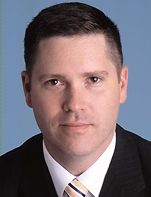 Dr. John P. Fisher is the Fischell Family Distinguished Professor and Department Chair in the Fischell Department of Bioengineering at the University of Maryland. Dr. Fisher is also the Director of the newly established NIH Center for Engineering Complex Tissue (CECT) that aims to create a broad community focusing on 3D printing and bioprinting for regenerative medicine applications. Dr. Fisher completed a B.S. in biomedical and chemical engineering at The Johns Hopkins University (1995), M.S. in chemical engineering at the University of Cincinnati (1998), Ph.D. in bioengineering at Rice University (2003), and postdoctoral fellowship in cartilage biology and engineering at the University of California Davis (2003). As the Director of the Tissue Engineering and Biomaterials Laboratory, Dr. Fisher’s group investigates biomaterials, stem cells, bioprinting, and bioreactors for the regeneration of lost tissues, particularly bone, cartilage, and cardiovascular tissues. Initially, the laboratory developed a novel class of biodegradable polymers, based upon an acetal monomer, that result in non-acidic degradation products upon hydrolysis. The laboratory utilized these, and other polymer systems (both natural and synthetic) to create biomimetic environments for cell culture and, critically, demonstrated the relationship between cell microenvironment and endogenous protein signal expression. Subsequent efforts focused on the development of a novel perfusion bioreactor for dynamic cell culture. Most recently, Dr. Fisher’s laboratory has developed strategies for the 3D printing of a variety of tissue engineering biomaterials and scaffolds. Overall, the laboratory has published over 140 articles, book chapters, and proceedings (4900+ citations / 39 h-index) as well as delivered over 285 invited and contributed presentations, while utilizing over $15M in financial support from NIH, NSF, FDA, NIST, DoD, and other institutions. Fisher has advised 8 postdoctoral fellows (3 current), 23 doctoral students (12 current), 6 Master students, and supported the research activities of over 65 undergraduates (8 current). Students in Dr. Fisher’s laboratory have received a number of awards and honors: University of Maryland Undergraduate Researcher of the Year (3), Bioengineering Department Outstanding Graduate Researcher of the Year (2), NSF Graduate Fellows (2), AHA Graduate Fellow (3), NIH Postdoctoral Fellow (1), Fulbright Fellow (2), and TERMIS / Mary Ann Liebert Outstanding Student (1). Fisher has been elected Fellow of both the American Institute for Medical and Biological Engineering (2012) and the Biomedical Engineering Society (2016). Fisher has received the NSF CAREER Award (2005), Arthritis Foundation’s Investigator Award (2006), Outstanding Graduate Alumnus Award from the Department of Bioengineering at Rice University (2007), Engalitcheff Award from the Arthritis Foundation (2008), Next Power Professorship from Tsing Hua University in Taiwan (2015), and a Fulbright Fellowship to study at the National University of Ireland, Galway (2015). At the University of Maryland, Fisher has received the Invention of the Year Award (2006 & 2014), First Place in the Venture Fair Competition (2009 & 2013), Teaching Excellence Award from the Fischell Department of Bioengineering (2011), Graduate Faculty Mentor of the Year Award (2015), and the Outstanding Director of Graduate Studies Award (2015). Fisher is currently the Editor-in-Chief of the journal Tissue Engineering, Part B: Reviews. In addition, Fisher has edited or co-edited 6 monographs in the field of tissue engineering. In 2014, Fisher was the Chair of the Tissue Engineering and Regenerative Medicine International Society– Americas (TERMIS-AM) Chapter Annual Meeting in Washington, DC. In 2014, Fisher was elected Chair of TERMIS-AM, and in 2015 started his term as Chair-Elect of the society. |
Gabor ForgacsProfessor, University of Missouri-Columbia; Scientific Founder, Organovo; CSO, Modern Meadow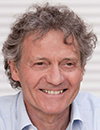 Dr. Gabor Forgacs is a theoretical physicist turned bioengineer turned innovator and entrepreneur. He is the George H. Vineyard Professor of Biological Physics at the University of Missouri-Columbia, the Executive and Scientific Director of the Shipley Center for Innovation at Clarkson University and scientific founder of Organovo, Inc. and Modern Meadow, Inc. He was trained as a theoretical physicist at the Roland Eotvos University, Budapest, Hungary and the Landau Institute of Theoretical Physics, Moscow, USSR. He also has a degree in biology. His research interests span from topics in theoretical physics to physical mechanisms in early embryonic development. He is the co-author of the celebrated text in the field, “Biological Physics of the Developing Embryo” (Cambridge University Press, 2005) that discusses the fundamental morphogenetic mechanisms evident in early development. These mechanisms are being applied to building living structures of prescribed shape and functionality using bioprinting, a novel tissue engineering technology he pioneered. He is the author of over 160 peer-reviewed scientific articles and 5 books. He has been recognized by numerous awards and citations. In particular, he was named as one of the “100 most innovative people in business in 2010” by FastCompany. |
James HickmanProfessor, Nanoscience Technology, Chemistry, Biomolecular Science and Electrical Engineering, University of Central Florida; Chief Scientist, Hesperos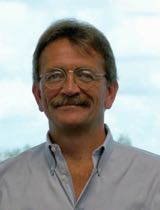 James J. Hickman is the Founding Director of the NanoScience Technology Center and a Professor of Nanoscience Technology, Chemistry, Biomolecular Science, Biomedical Engineering, Material Science and Electrical Engineering at the University of Central Florida. Previously, he held the position of the Hunter Endowed Chair in the Bioengineering Department at Clemson University. Dr. Hickman has a Ph.D. from the Massachusetts Institute of Technology in Chemistry. For the past thirty years, he has been studying the interaction of biological species with modified surfaces, first in industry and in the latter years in academia. While in industry he established one of the first bioelectronics labs in the country that focused on cell-based sensors and their integration with electronic devices and MEMS devices. He is interested in creating hybrid systems for biosensor and biological computation applications and the creation of functional in vitro systems for human body-on-a-chip applications. He has worked at NSF and DARPA in the area of biological computation. He is also the founder and current Chief Scientist of a biotechnology company, Hesperos, that is focusing on cell-based systems for drug discovery and toxicity. He has 166 publications and 20 book chapters, in addition to 34 issued patents out of 50 total patent applications. He was elected to the Board of Directors of the American Institute for Medical and Biological Engineering (AIMBE) for 2 consecutive terms, the premier society for Biomedical Engineering of which he is a Fellow. He is also a Fellow of the American Vacuum Society (AVS) and National Academy of Inventors (NAI) as well as BioFlorida’s Researcher of the Year (2022). Dr. Hickman along with Dr. Michael Shuler, won the Lush Prize, in the Science Category, which Supports Animal Free Testing in 2015. |
David L. KaplanStern Family Endowed Professor of Engineering, Professor & Chair -- Dept of Biomedical Engineering, Tufts University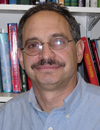 David Kaplan holds an Endowed Chair, the Stern Family Professor of Engineering, at Tufts University. He is Professor & Chair of the Department of Biomedical Engineering and also holds faculty appointments in the School of Medicine, the School of Dental Medicine, Department of Chemistry and the Department of Chemical and Biological Engineering. His research focus is on biopolymer engineering to understand structure-function relationships, with emphasis on studies related to self-assembly, biomaterials engineering and functional tissue engineering/regenerative medicine. He has published over 600 peer reviewed papers and edited eight books. He directs the NIH P41 Tissue Engineering Resource Center (TERC) that involves Tufts University and Columbia University. He serves of the editorial boards of numerous journals and is Associate Editor for the ACS journal Biomacromolecules. He has received a number of awards for teaching, was Elected Fellow American Institute of Medical and Biological Engineering and received the Columbus Discovery Medal and Society for Biomaterials Clemson Award for contributions to the literature. |
Shana KelleyProfessor, University of Toronto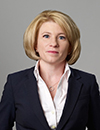 Dr. Shana Kelley is a Distinguished Professor of Chemistry, Biochemistry, Pharmaceutical Sciences, and Biomedical Engineering at the University of Toronto. Dr. Kelley received her Ph.D. from the California Institute of Technology and was a NIH postdoctoral fellow at the Scripps Research Institute. The Kelley research group works in a variety of areas spanning bioanalytical chemistry, chemical biology and nanotechnology. Shana’s group has developed novel electrochemical sensors that enable ultrasensitive nucleic acids detection for clinical diagnostics, and has also investigated a new set of chemical probes that interact with intracellular nucleic acids. The Kelley labs also use nucleic acids as building blocks for complex nanomaterials assembly. Dr. Kelley’s work has been recognized with a variety of distinctions, including being named one of “Canada’s Top 40 under 40”, a NSERC E.W.R. Steacie Fellow, and the 2011 Steacie Prize. She has also been recognized with the Pittsburgh Conference Achievement Award, an Alfred P. Sloan Research Fellowship, a Camille Dreyfus Teacher-Scholar award, a NSF CAREER Award, a Dreyfus New Faculty Award, and was also named a “Top 100 Innovator” by MIT’s Technology Review. She is a founder of two molecular diagnostics companies, GeneOhm Sciences (acquired by Becton Dickinson in 2005) and Xagenic Inc. |
Jeffrey MorganProfessor of Medical Science and Engineering, Brown University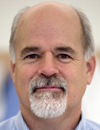 Jeff Morgan is Professor of Medical Science and Engineering at Brown University. A graduate of Syracuse (BS) and Harvard (PhD) with postdoctoral training at MIT and the Whitehead Institute, he was on the faculty of Harvard Medical School prior to Brown. Dr. Morgan has received numerous awards and patents for his research in gene therapy and tissue engineering and he has co-founded three companies including his latest, Microtissues, Inc (www.microtissues.com). Among his inventions are the 3D Petri Dish®, a technology for growing cells in three dimensions with applications in toxicity testing, drug discovery and tissue engineering. Dr. Morgan has published over 130 peer-reviewed papers, reviews and chapters and has edited two books and is an inventor of 12 U.S. and international patents. He is a Fellow of the National Academy of Inventors as well as a Fellow of the American Institute of Medical and Biological Engineering. |
Michael ShulerSamuel B. Eckert Professor of Engineering, Cornell University, President Hesperos, Inc.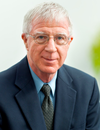 Michael L. Shuler is the Eckert Professor of Engineering, Emeritus in the Meing Department of Biomedical Engineering and in the Smith School of Chemical and Biomolecular Engineering at Cornell University, and was director of Cornell’s Nanobiotechnology Center. Shuler has degrees in chemical engineering (BS, Notre Dame, 1969 and Ph.D., Minnesota, 1973) and has been a faculty member at Cornell University since 1974. Shuler’s research includes development of “Body-on-a-Chip” for testing pharmaceuticals for toxicity and efficacy, creation of production systems for useful compounds, such as paclitaxel from plant cell cultures, and construction of whole cell models relating genome to physiology. Shuler is CEO and President of Hesperos, a company founded to implement the “Body-on-a-Chip” system. Shuler and F. Kangi have authored a popular textbook, “Bioprocess Engineering; Basic Concepts” now in its third edition. He has an honorary doctorate from the University of Notre Dame. Shuler has been elected to the National Academy of Engineering and the American Academy of Arts and Science and is a fellow of numerous professional societies. |
Mehmet TonerHelen Andrus Benedict Professor of Biomedical Engineering, Massachusetts General Hospital (MGH), Harvard Medical School, and Harvard-MIT Division of Health Sciences and Technology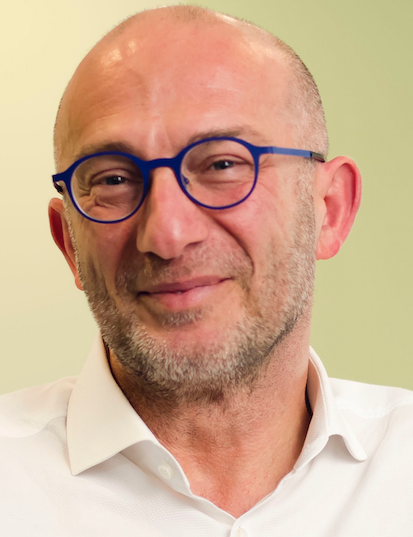 Mehmet Toner is the Helen Andrus Benedict Professor of Biomedical Engineering at the Massachusetts General Hospital (MGH), Harvard Medical School, and Harvard-MIT Division of Health Sciences and Technology. Mehmet received a BS degree from Istanbul Technical University and an MS degree from the Massachusetts Institute of Technology (MIT), both in Mechanical Engineering. Subsequently he completed his PhD degree in Medical Engineering at Harvard-MIT Division of Health Sciences and Technology in 1989. Mehmet is the co-founding Director of the Center for Engineering in Medicine, and BioMicroElectroMechanical Systems Resource Center (BMRC) at the MGH. He is also the Director of Research at the Shriners Hospital for Children Boston. Mehmet holds over 50 patents, has more than 350 publications, and is a co-founder of multiple biotechnology start-ups. Mehmet is a “Fellow of the American Institute of Medical and Biological Engineering”, “Fellow of the American Society of Mechanical Engineers”, and “Fellow of the Society for Cryobiology.” In 2012, he was given the “Luyet Medal” by the Society for Cryobiology. In 2013, he received the “H.R. Lissner Medal” from the American Society of Mechanical Engineering. He is a member of the “National Academy of Inventors” and a member of the “National Academy of Engineering.” |
David WeitzMallinckrodt Professor of Physics and Applied Physics, Director of the Materials Research Science and Engineering Center, Harvard University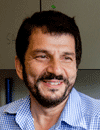 Professor David Weitz received his PhD from Harvard. He worked at Exxon Research and Engineering as a research physicist for nearly 18 years, and then became a Professor of Physics at the University of Pennsylvania. He moved to Harvard at the end of the last century, and is currently Professor of Physics and Applied Physics. He is also the director of Harvard's Materials Research Science and Engineering Center. Several start-up companies have come from his lab to exploit some of the technological applications of his work. |




